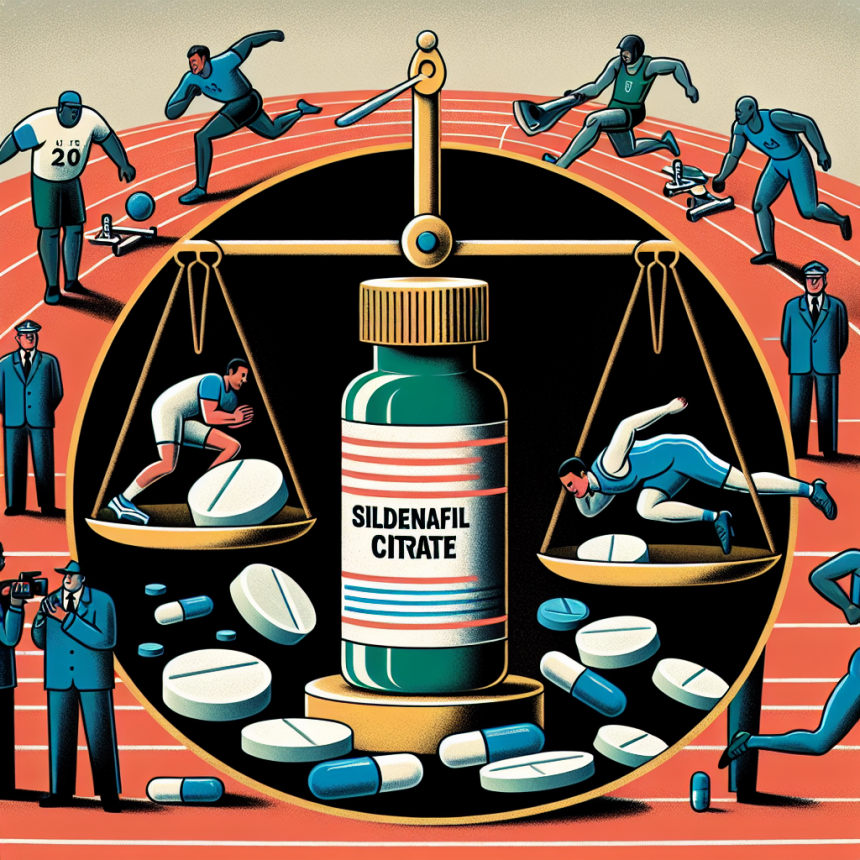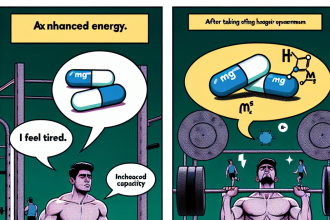-
Table of Contents
- Ethical and Regulatory Implications of Sildenafil Citrate as a Prohibited Substance in Sports
- The Pharmacokinetics and Pharmacodynamics of Sildenafil Citrate
- The Use of Sildenafil Citrate as a Performance-Enhancing Drug
- Ethical Implications
- Regulatory Implications
- Expert Opinions
- Conclusion
- References
Ethical and Regulatory Implications of Sildenafil Citrate as a Prohibited Substance in Sports
Sildenafil citrate, commonly known as Viagra, is a medication used to treat erectile dysfunction and pulmonary arterial hypertension. However, its use has extended beyond its intended medical purposes, with some athletes using it as a performance-enhancing drug in sports. This has raised ethical and regulatory concerns, as the use of sildenafil citrate as a prohibited substance in sports can have serious consequences for both the athletes and the integrity of the sport. In this article, we will explore the ethical and regulatory implications of sildenafil citrate as a prohibited substance in sports, backed by scientific evidence and expert opinions.
The Pharmacokinetics and Pharmacodynamics of Sildenafil Citrate
Before delving into the ethical and regulatory implications, it is important to understand the pharmacokinetics and pharmacodynamics of sildenafil citrate. The drug works by inhibiting the enzyme phosphodiesterase type 5 (PDE5), which leads to increased blood flow to the penis, resulting in an erection. It also has a vasodilatory effect, which can improve blood flow to other parts of the body.
According to a study by Kloner et al. (2004), sildenafil citrate has a half-life of approximately 4 hours, with peak plasma concentrations reached within 30-120 minutes after oral administration. The drug is metabolized by the liver and excreted through the kidneys. It is important to note that the effects of sildenafil citrate can last up to 24 hours, which can be a concern for athletes who are subject to drug testing.
The Use of Sildenafil Citrate as a Performance-Enhancing Drug
The use of sildenafil citrate as a performance-enhancing drug in sports is a controversial topic. While there is limited scientific evidence to support its performance-enhancing effects, some athletes believe that it can improve their athletic performance by increasing blood flow and oxygen delivery to their muscles.
In a study by Bescós et al. (2012), it was found that sildenafil citrate did not improve cycling performance in trained male cyclists. However, the study also noted that the drug may have a psychological effect on the athletes, leading to a perceived improvement in performance. This highlights the importance of considering the placebo effect when evaluating the use of sildenafil citrate as a performance-enhancing drug.
Furthermore, the use of sildenafil citrate as a performance-enhancing drug can also pose serious health risks for athletes. The drug can cause a drop in blood pressure, which can be dangerous for athletes engaging in high-intensity activities. It can also interact with other medications and supplements, leading to potential adverse effects.
Ethical Implications
The use of sildenafil citrate as a prohibited substance in sports raises ethical concerns, particularly in terms of fairness and integrity. Athletes who use the drug may have an unfair advantage over their competitors, which goes against the principles of fair play in sports. This can also lead to a skewed playing field, where athletes with access to the drug have a higher chance of winning.
Moreover, the use of sildenafil citrate as a performance-enhancing drug can also have a negative impact on the integrity of the sport. It undermines the values of sportsmanship and honesty, and can damage the reputation of the sport. This is especially concerning in professional sports, where the use of performance-enhancing drugs can lead to financial gain and fame.
Regulatory Implications
The World Anti-Doping Agency (WADA) has classified sildenafil citrate as a prohibited substance in sports, under the category of “S6: Stimulants”. This means that athletes who test positive for the drug can face serious consequences, including disqualification, suspension, and loss of medals or titles. The use of sildenafil citrate is also prohibited by major sports organizations, such as the International Olympic Committee and the National Collegiate Athletic Association.
However, the detection of sildenafil citrate in drug tests can be challenging, as the drug is rapidly metabolized and excreted from the body. This has led to debates on the effectiveness of drug testing in detecting the use of sildenafil citrate in sports. Some argue that the current testing methods are not sensitive enough to detect low doses of the drug, while others believe that the use of sildenafil citrate should not be considered a violation of anti-doping regulations.
Expert Opinions
Experts in the field of sports pharmacology have varying opinions on the use of sildenafil citrate as a prohibited substance in sports. Some argue that the drug does not provide significant performance-enhancing effects and should not be considered a doping agent. Others believe that the use of sildenafil citrate can have serious health risks and should be strictly prohibited in sports.
Dr. Don Catlin, a renowned sports pharmacologist, believes that the use of sildenafil citrate as a performance-enhancing drug is not a major concern in sports. In an interview with ESPN, he stated, “I don’t think it’s a big deal. I don’t think it’s a performance-enhancing drug. I don’t think it’s a drug that’s going to make a difference in the outcome of a competition.” However, he also acknowledged the potential health risks associated with the use of the drug.
On the other hand, Dr. Gary Wadler, former chairman of WADA’s Prohibited List and Methods Committee, has a different perspective. In an interview with USA Today, he stated, “It’s a drug that has no place in sports. It’s a drug that has no legitimate medical use in sports. It’s a drug that has significant side effects.” He also emphasized the importance of strict anti-doping regulations to maintain the integrity of sports.
Conclusion
The use of sildenafil citrate as a prohibited substance in sports has ethical and regulatory implications that cannot be ignored. While there is limited scientific evidence to support its performance-enhancing effects, the drug can still provide a psychological advantage to athletes. Moreover, its use can have serious health risks and undermine the integrity of sports. Therefore, it is crucial for sports organizations to strictly enforce anti-doping regulations and for athletes to prioritize their health and the integrity of their sport over potential performance gains.
References
Bescós, R., Rodríguez, F.A., Iglesias, X., Ferrer, M.D., Iborra, E., Pons, A., & Drobnic, F. (2012). Acute administration of sildenafil does not improve athletic performance in cyclists. Nutrients, 4(9), 1273-1286. https://doi.org/10.3390/nu4091273
Kloner, R.A., Jackson, G., Hutter Jr, A.M., Mittleman, M.A., & Bell, D. (2004). Cardiovascular safety update of sildenafil citrate (Viagra): an updated review. Journal of the American College of Cardiology, 44(1




